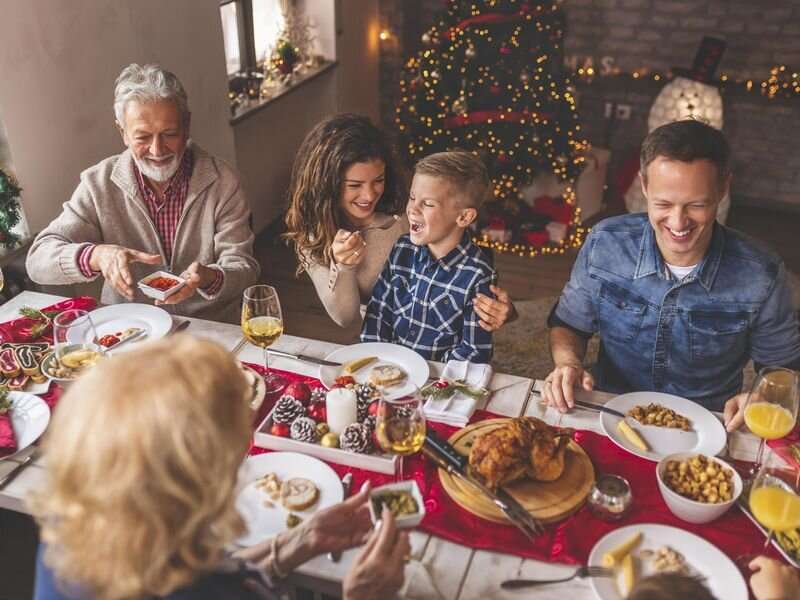Keep food poisoning at bay this holiday season

A happy holiday can go sour quickly when food poisoning joins the party.
Experts from Rutgers New Jersey Poison Control Center offer some tips on safely thawing, preparing and storing food, as well as avoiding issues with alcohol and drugs.
"Forgetting about food safety is a recipe for disaster," said Diane Calello, executive and medical director of the poison control center at the Rutgers New Jersey Medical School's department of emergency medicine.
"Don't prepare food if you have any kind of respiratory illness or infection, as this puts your guests at risk of becoming ill. No matter how busy your kitchen gets during the holidays, always remember the risks of improperly handling food," she said in a Rutgers news release.
Food poisoning is no small problem. It sickens about 48 million Americans each year, causing 128,000 to be hospitalized and 3,000 to die, according to the U.S. Centers for Disease Control and Prevention. But here's some advice from the poison center on how to avoid it:
- To start, remember to clean, separate, cook and chill.
- Wash your hands and surfaces often with warm water and soap during food preparation.
- Use just water to clean fruits and vegetables, not soap.
- Don't let food that will be served raw come into contact with uncooked poultry, meat or seafood while grocery shopping or in the refrigerator. Use one cutting board for produce and bread, and a separate one for raw meats or seafood.
- While your refrigerator should be set below 40° Fahrenheit, a food thermometer can help you ensure cooked foods reach a safe internal temperature.
- Frozen food should never be thawed on the counter, but rather in the refrigerator, in cold water or in the microwave because bacteria, parasites and viruses can grow quickly at room temperature.
- Perishable food should be refrigerated within two hours.
The effects of food poisoning can be felt within a few hours, and may include nausea, vomiting, stomach cramps, diarrhea and fever. It's especially risky for young children, pregnant women and those with weakened immune systems.
It's also important to understand how to drink safely and to recognize alcohol poisoning, the poison center advises. Be aware of how much alcohol you're actually consuming, not just the number of drinks, to avoid having more than is safe.
Certain holiday foods can also be unsafe for pets. These include chocolate, candy, bread and dough, fatty meat scraps, grapes, raisins and currants, sugar-free products and cocoa. Artificial sweeteners like xylitol can cause severe illness, as can items that look like food such as button batteries, small magnets, vapes and nicotine products, medicines and recreational and prescription drugs.
More information: The U.S. Centers for Disease Control and Prevention has more on food poisoning.
Copyright © 2022 HealthDay. All rights reserved.




















